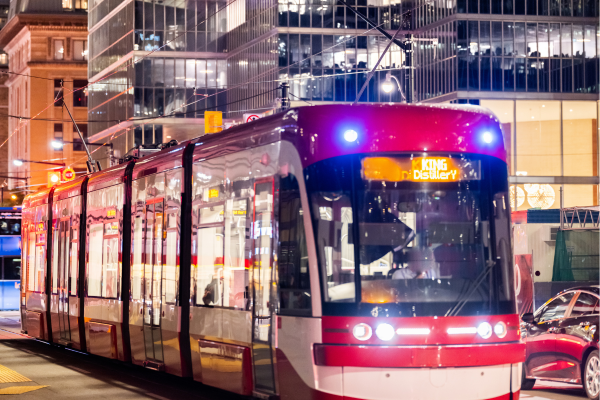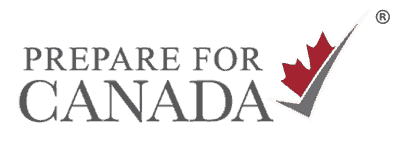
For newcomers, carefully managing your finances is vitally important, especially if you have not yet landed your ideal job. And, settlement agencies suggest that it can take up to six months to land a job that matches your skills and experiences. In the meantime, managing your finances and spending can serve to reduce stress and financial pressure. In addition, managing your finances well will help you build your Canadian credit history and influence your credit score. Here, we’ll explore how you can create a budget for some of the main expenses you will have to cover in Canada. So where to start, which is essential to achieving future loans! You need to establish your Canadian credit history because it will be important for many reasons including buying your first home.
One of the most important factors in your financial situation is not how much you earn, but rather how much you spend. But, many Canadians get caught in too much debt, trying to “keep up with the neighbours” — in other words, buying everything you want, from cars to electronics, even if you can’t afford it. Overspending can get you caught in a trap that you want to avoid.
Create a Budget to Manage Your Personal Finances
To manage your personal finances, you can prepare a budget. with the following costs in mind. But the cost of living in Canada depends greatly on the city in which you choose to settle and on the size of your family. Large cities attract the bulk of new immigrants and offer the most job opportunities, however, living costs are also higher. Here are some of the basic expenses that you can keep in mind to help you manage your finances:
Rent Payments
Newcomers often rent an apartment as their first means of accommodation. Typically, rent prices for a small one-bedroom apartment begin at $700 and can be as high as $2,500 per month depending on the city you choose to settle in.
Advertisement:
When renting, make sure that you conduct thorough research on the apartment building and its surroundings and then outline the positives and negatives to see if it is the right place for you. Perhaps the property is close to amenities like shops, swimming pools, libraries, and public transport which depending on your requirements may make it an attractive option for you.
Our Rentals for Newcomers site is a practical and easy-to-navigate site that can help you find housing that meets your unique needs! And you can even determine the average costs of rentals in cities across Canada. This is helpful since rental prices change often. You’ll also find some helpful articles related to housing in Canada.
Related Posts:
What is the Cost of Accommodation in Canada?
Why Credit History is Important When You Rent a Home in Canada
Sharing Accommodation in Canada as a Newcomer
Advertisement:

Utility Bills
You will need to budget for the cost of utilities such as electricity (hydro), heating, telephone, cable, and internet.
Many rentals include heating and some include even hydro in the cost of the rent. If you have to pay for electricity, you can ask the landlord what you expect to pay every month. But, your bill will also depend on usage and time of day.
When it comes to internet, cable, and telephone, the best option is to shop for bundles (combined service plans) from different telecom providers in your area. A bundle can cost anywhere between $60 per month to more than $100 per month. Or, check out streaming services that can be less expensive than cable television.
Cell phone plans range from $15 per month to more than $150, depending on the number of free minutes and text messages and the data usage limits. Voicemail activation usually costs extra. You can start with a basic plan and upgrade according to your needs.
While not a bill per se, the cost of doing laundry will be similar from one month to the next. Apartment buildings come with laundry rooms with coin or card-operated washing machines. A washing cycle costs between $2.25 to $3.50 depending on the length, and a dryer cycle has a similar cost.
Related Posts:
Money Management Tips for Newcomers to Canada
Cost-Savings Ideas: 22 Practical Tips for Newcomers
Banking and Finance in Canada: Your First Steps
Insurance
Even if you are renting, it’s a good idea to purchase renter’s insurance to protect you against damage and theft. The insurance can cost up to a few hundred dollars a year. Auto insurance is $1,000 or more a year.
Depending on your province, you may also have to pay health insurance premiums, which vary from province to province and according to the size of your family. You will also need to factor in the premiums for any private health insurance you may choose to buy.
Related Posts:
Insurance in Canada: What Newcomers Need to Know
Public Transit

Public transit is probably the most affordable to travel within your city. And, all cities offer affordable travel options such as buses, trains, subways, light-rail trains, and streetcars. A monthly transit pass can cost anywhere between $70 to more than $150 depending on the city and the number of travel routes that it covers. In large cities, such as Toronto, the public transit system covers the broader Greater Toronto Area, and you can easily transfer from one mode of transportation to another.
To use public transit, you can purchase individual tickets starting at $2.50, but you can use a transfer at the start of your destination to transfer to different modes of transportation. In other words, you only have to pay once at the start of your destination. You can also buy transit passes that allow you unlimited transit use for a period of time. Some cities offer an electric fare payment system that allows you to load money onto a card to make travelling easier and at a discounted fare.
You can find specific fare information about public transit in your city by visiting the website of your city government, or the public transit system.
Food and Other Groceries
The cost of your food bill will depend largely on your dietary limitations and personal standards, but also on the area in which you live. The stores and supermarkets in popular posh areas will be more expensive and will offer more high-quality gourmet and organic products, while cheaper areas will have more low-cost options. Food can set you back anywhere from $100 per month for a single person to several hundred. Cooking at home and planning your meals will help to balance cost and nutrition.
In terms of personal care items and other supplies, costs can start at $1 at dollar stores, but you will often have to compromise on quality. Supermarkets have their own store brands that are usually cheaper than name brands and, in many cases, of comparable quality.
Clothing
Again, your personal standards will have the final say when it comes to clothing. You should bring with you quality items that will last you for a while because clothes shopping is best kept until after you find employment. You can pay anywhere from a few dollars for an item of clothing at a cheap retailer or a thrift (second-hand) store to hundreds and even thousands at high-end designer stores. Read more about the types of clothing you’ll need in Canada.
Entertainment
Movie tickets can cost from $7 to $15 depending on the movie and the time of day. Most theatre tickets usually start at $20, and concerts of popular performers can cost well over $100. You can take advantage of local libraries to borrow DVDs and look for community theatres with free performances or performances by donation. It’s important to budget for entertainment, but this may be a personal finance area that you can cut back on if necessary.
Other Personal Finance Expenses
Big cities can be very tempting with their variety of cultures and cuisines, so you will probably want to treat yourself and your family to occasional restaurant outings. The costs can be anywhere from a few dollars per person at fast-food restaurants, to more than $50 per person at an average restaurant. Never forget to factor in the tip, which should be at least 15 to 20 percent of the bill.
Staying fit and healthy should always be a priority. Some rental buildings come with their own gyms and the price may be very low or included in the rent. If you plan to subscribe to a gym, always read the fine print. The monthly cost is usually $60 to $100, but most gyms charge introductory fees and substantial cancellation fees.
Personal care costs also cover the range from basic to luxury. Expect to pay at least $25 for a simple haircut (plus tip) and anywhere from $40 to $60 for a manicure.
If you’ve recently arrived in Canada, managing your personal finances carefully will help you to reduce financial stress until you find your first job. And, the strong personal finance habits that you follow during your first year in Canada will help you to achieve many of your long-term financial goals.

